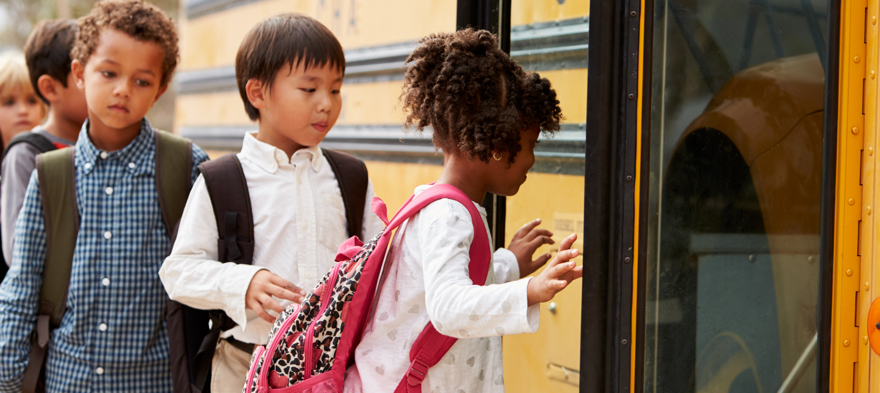
Jul 3, 2019 12:00:00 AM
From kindergarten through eighth grade, I was bused to Frank W. Gunsaulus Scholastic Academy, a magnet school in Chicago’s Brighton Park community. I lived and grew up in Englewood–a predominantly Black, low-income neighborhood about six miles southeast of the grammar school.
Traveling to Gunsaulus was like venturing into a whole new world. The students and families in and around my school were White, Latino and Asian—with only a handful of people that looked like me. Brighton Park looked cleaner, more stable and felt a little safer compared to Englewood. I appreciated having that temporary escape.
As a child, I didn’t think anything of this opportunity. I didn’t question why I got bused outside my community to a good school, while the other kids in my neighborhood walked to the poor performing school. I just chalked it up to being lucky.
But in retrospect, while I got chauffeured to school in a big, clunky, yellow limousine, millions of other kids literally missed the bus and were stuck in terrible schools—and that’s unfair.
Not only did many White people oppose integration because they didn’t want their kids going to school with Black kids, but so did some Black people, but not for the same reasons. Black parents simply wanted investment in the schools in their communities and not to have to travel into White communities to receive a quality education.
Despite this opposition, the integration plans were carried out and that brings us to where we are today—in the same position we were in 50 years ago.
While some studies have shown that integration through busing worked, schools are still segregated—some would argue more than they’ve ever been.
Democratic presidential candidates are reviving school desegregation efforts. Joe Biden and Bernie Sanders introduced voluntary and court-ordered plans to force school integration. New York City’s mayor and 2020 contender Bill de Blasio has been trying to push integration in his schools even though again, his constituents, and White families across the country, don’t want it.
It all comes down to this: I’m a benefactor of access through busing but I’m not down with it being the end all, be all. And there’s nothing wrong with that option if students and families choose it, but they should also have the option of choosing from a high-performing school in their own community.
So while history repeats itself with forcing the same failed policies and attempts to out-maneuver discriminatory attitudes, kids in low-income Black and Brown neighborhoods are still attending low-quality schools. If we truly want all kids to have a good education, the conversation and implementation has to shift from integration to providing high-quality options to all families in all communities.
Tanesha Peeples is driven by one question in her work—“If not me, then who?” As the former Deputy Director of Activist Development for brightbeam, Tanesha merges the worlds of communications and grassroots activism to push for change in the public education system. Her passion for community and relentless mission for justice and liberation drive her in uplifting and amplifying the voices and advocacy of those that are often ignored. Tanesha wholeheartedly believes that education is the foundation for success. Her grand vision is one where everyone—regardless of ethnicity, socioeconomic status, gender or ZIP code—can have access to a comfortable quality of life and enjoy the freedoms and liberties promised to all Americans. And that's what she works towards every day.
Few issues in education spark more tension and debate than standardized testing. Are they a tool for equity or a burden on students? A necessary check on school systems or a flawed measure of...
Charter schools are public schools with a purpose. Operating independently from traditional school districts, they're tuition-free, open to all students, and publicly funded—but with more flexibility...
Despite the benefits of a diverse teaching force, prospective teachers of color fall out of our leaky preparation pipeline at every stage: preparation, hiring, induction, and retention. Here’s what...
Ed Post is the flagship website platform of brightbeam, a 501(c3) network of education activists and influencers demanding a better education and a brighter future for every child.
© 2020-2025 brightbeam. All rights reserved.
Leave a Comment